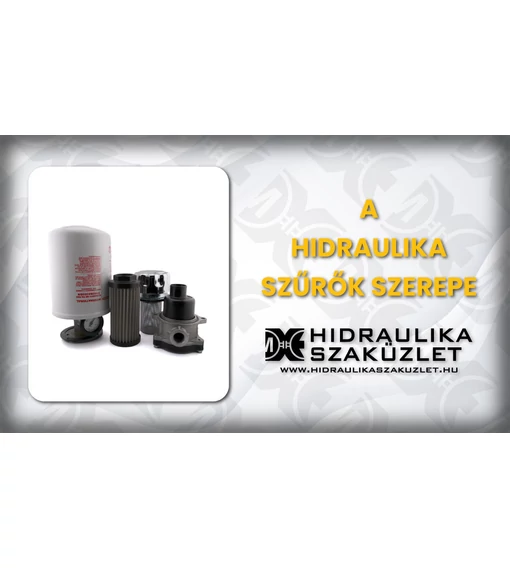Operation of Hydraulic Filters
Purchasing quality filters can be done quickly, and suitable options are available for every system, equipment, and industrial application. In hydraulic machines and systems, hydraulic fluids transmit energy. However, due to continuous use, they can become contaminated with dust, metal shavings, or other particles. This is where filters come into play, whose main task is to remove foreign substances. This prevents damage to hydraulic components and loss of efficiency in the entire system.
Types of Hydraulic Filters
Filters are generally made from special materials and designed according to standards. There are several types, as they need to be used in different equipment, systems, and machines. There are even modern filters that include magnetic elements to attract metal particles, thus improving cleaning efficiency.
In hydraulic systems, various types can be found, each with different placements and functions. For example, suction filters are located before the pump and prevent larger contaminants from entering the system. They have a rougher design, but care must be taken to ensure they do not reduce the performance of the device.
Pressure filters are found after the hydraulic pump, and their task is to filter out the finest particles before they reach the cylinders, motors, or other sensitive components. Air filters and breather filters ensure air exchange in the tank so that external contaminants do not cause problems. The MP-Filtri TAP115-2 is an excellent example of a filler breather filter.

The Importance of Maintenance
Filters also require continuous care and monitoring, as even a small issue or wear can lead to contamination of the hydraulic fluid, which in turn reduces the efficiency or performance of the system or equipment. With regular maintenance, most problems can be prevented, and the long lifespan of the entire mechanism can be ensured. Several aspects must be considered during the procedure.
The condition of the filters should be checked periodically, especially when signs of clogging appear in the system. These include increased noise levels or temperature, and reduced performance is also a clear indicator.
The replacement of filters should always be done according to the manufacturer's recommendations. A clogged component can reduce efficiency, but if the wrong one is installed — one that does not match in size, design, or material — it can lead to even bigger issues. A filter that is too coarse will not provide enough protection, while one that is too fine can excessively obstruct flow.
To select the appropriate filter, ask our expert colleagues for assistance!
Creating an Efficient System
Of course, in addition to filters, attention must also be paid to numerous other components when operating a hydraulic system.
Our online store offers everything needed for a precise and high-performance system.
